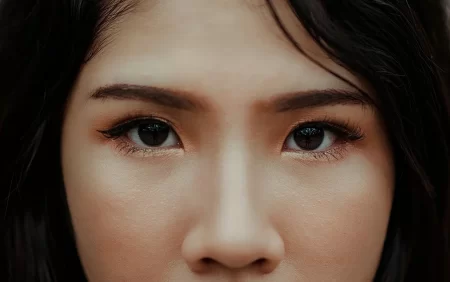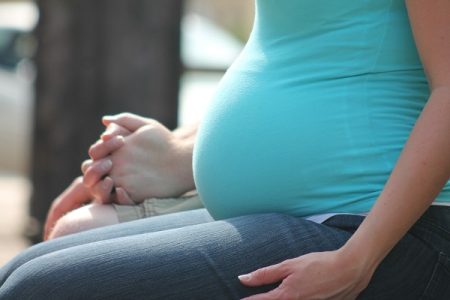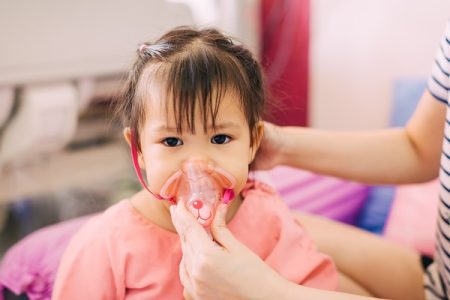What is Honeymoon Rhinitis?
- Updated on: Jun 10, 2024
- 3 min Read
- Published on Apr 23, 2021

A newly married person suffered from extreme shortness of breath and overall distress following his initial encounters with sexual activity. These incidents posed a threat to both his health and his marital relationship. Fortunately, with proper identification and medical care, the issues were fully resolved. This incident falls under a recognized but uncommon category—asthma triggered by sexual exertion, occurring at a lower threshold of physical stress than what typically initiates asthma from exercise. The limited available research on this subject was examined, proposing the label “honeymoon asthma,” or “honeymoon rhinitis” which aptly describes this particular instance.
Honeymoon Rhinitis: What is it and What Causes it?
This is an interesting question:
“What is a honeymoon nose or honeymoon rhinitis?”
Honeymoon nose or honeymoon rhinitis is a kind of nasal allergy or rhinitis that occurs after sexual excitement. It usually resolves on its own. The mechanism as to why it occurs and why it goes away on its own is not known.
A study reported 23 allergy sufferers (9 women and 14 men), all of whom had experienced sneezing, rhinorrhea, and nasal obstruction immediately after (but never before or during) sexual intercourse which lasted for about 5-15 minutes. All these 23 participants were made to climb two flights of stairs on three separate occasions to equate to the energy expenditure during sexual experience but none of them suffered any rhinitis with these tasks. The exact mechanism by which sex causes honeymoon rhinitis is not known. However, certain theories are propounded to explain the phenomenon.
Some researchers suggest that emotional excitement and anxiety may trigger the condition. Sexual activity is associated with autonomic stimulation, with the parasympathetic segment becoming more active toward the culmination in orgasm. This causes intense emotion during sexual intercourse resulting in the release of mast-cell mediators. This may be one of the possible reasons that can cause rhinitis in some patients. This theory is often termed as parasympathetic summation.
Some researchers attribute the reason to psychiatric mechanism. Sneeze represents a forceful emission of sexual tension.
Some other scientists provide humoral mechanism after establishing the existence of erectile tissue in the nose similar to the genital organs tissue as its probable reason. According to this theory, nitric oxide released enters the bloodstream and causes irritation of the nasal mucosa. But this takes a long time.
Symptoms of Honeymoon Rhinitis
The phenomenon is characterized by nasal congestion, irritation, watery secretions, inflammation of the mucous membrane, runny nose and sneezing during sexual arousal. These people sneeze as a result of sexual thoughts and arousal.
The sneezing may occur at any point during the sexual pleasure, and may occur irrespective of any external nasal stimuli or allergens. People already having nasal congestion due to allergy or other factors may get worsened symptoms in this period.
Who is Affected With Honeymoon Nose?
When a person is sexually excited, his or her nose starts producing secretions. This generally occurs at the time of honeymoon of newly-wed couples. Both men and women can be affected by honeymoon rhinitis throughout their adult life. The phenomenon is more common than usually noted because these are unusual and embarrassing actions which are not usually discussed with doctors by their patients. However, you can easily find a lot of information about this problem in online chat rooms and discussion forums.
Genetics
Sneezing in response to sexual orgasm may be an inherited phenomenon in an autosomal dominant manner. It was thought earlier that sneezing is inherited in an autosomal dominant pattern, and is probably caused by parasympathetic system-dependents mechanisms. It may be difficult to know, because parents and children are unlikely to discuss about these topics in general.
Prevention, Treatment and Cure
Treatment for non-allergic rhinitis may vary according to the cause. There are some general guidelines though for therapy that may be recommended to treat and/or prevent rhinitis.
- Common non-allergic triggers that may promote nasal congestion during sex should be avoided. If avoidance measures fail or are inadequate, you should consult a doctor for medications which can help in prophylaxis and symptomatic treatment.
- If triggers are unavoidable, patients can pre-treat themselves with topical nasal sprays before their exposure to the activity. For example, if symptoms occur during sex, then intranasal steroids or antihistamine sprays may be used before getting on the bed as recommended by your doctor.
- Fortunately, many drugs are available to treat non-allergic rhinitis. These may have few adverse effects or drug interactions. Therefore, please consult your doctor after discussion thoroughly about your condition and before considering any medication. Some of these may include:
- Intranasal steroid sprays
- Intranasal antihistamines
- Oral antihistamines
- Decongestants
- Ipratropium – an antimuscarinic agent that decreases secretions by inhibiting nasal parasympathetic mucous glands.
- Nasal saline irrigation
Initially, the therapy should be based on the presentation. If the patient has a limited or no response to the therapy at follow-up in 2 to 4 weeks, the doctor should consider using adjunctive medications, address patient adherence and technique, and evaluate the initial diagnosis again. The patient can consider reaching out to a specialist such as an allergist or otolaryngologist at this point.











